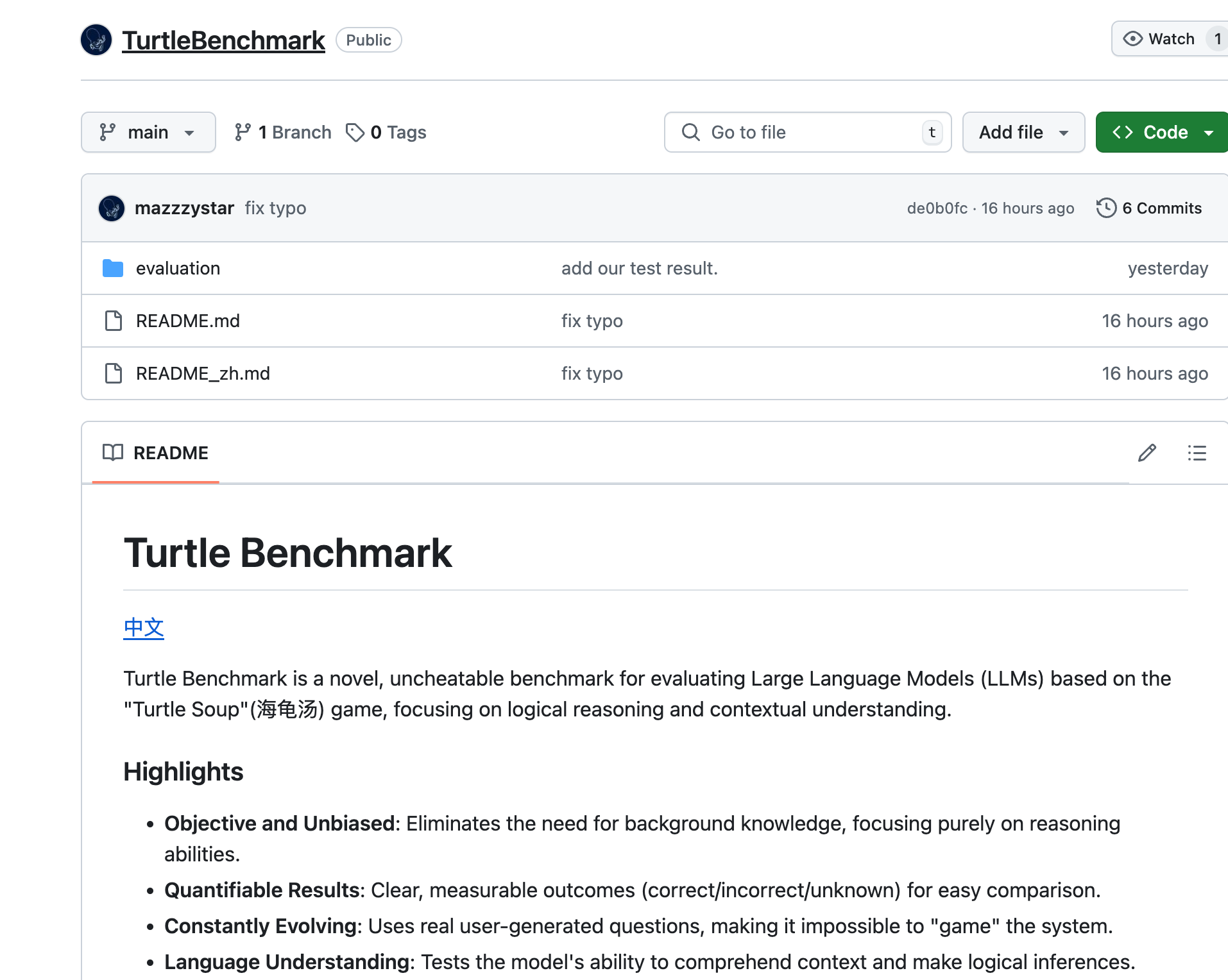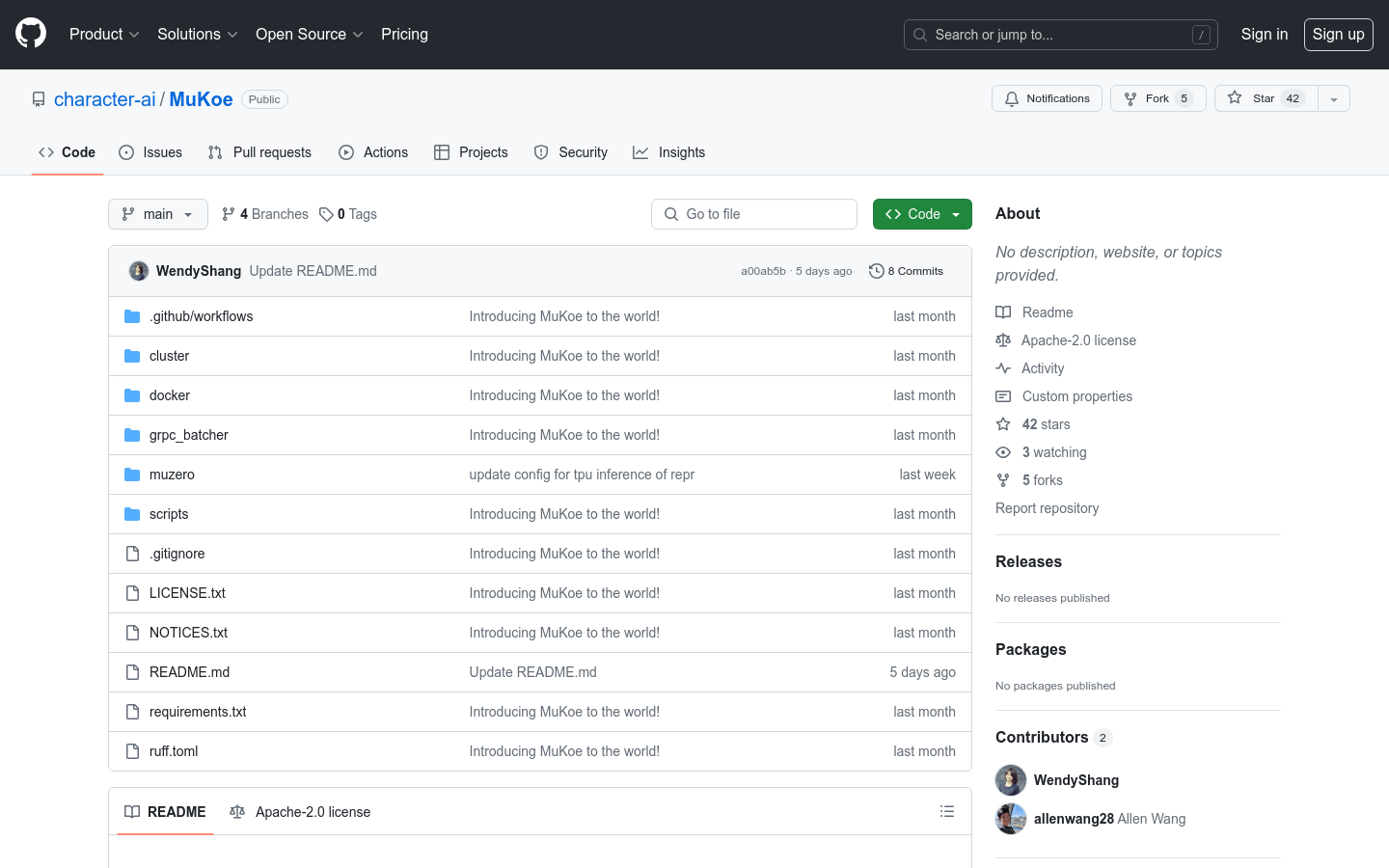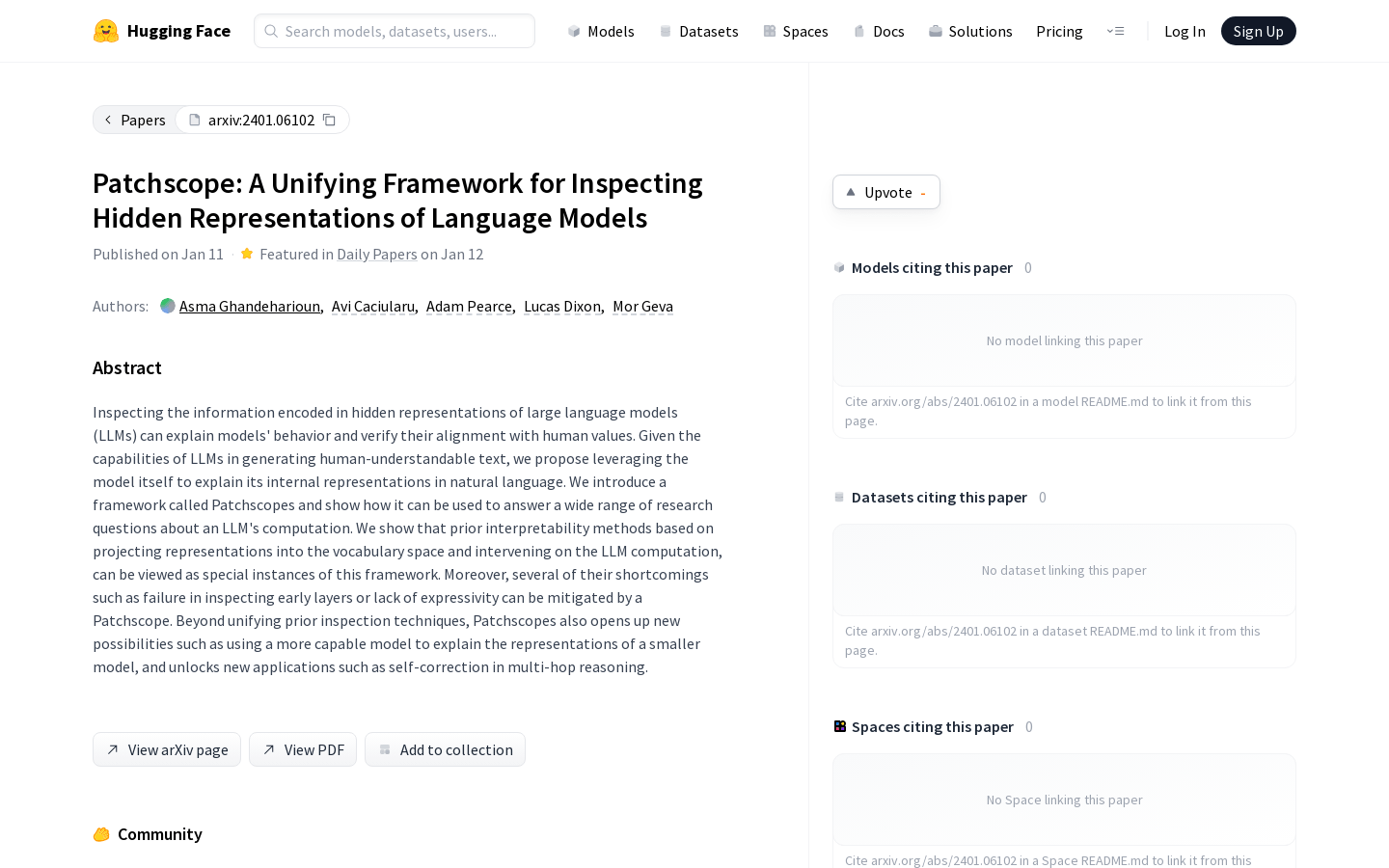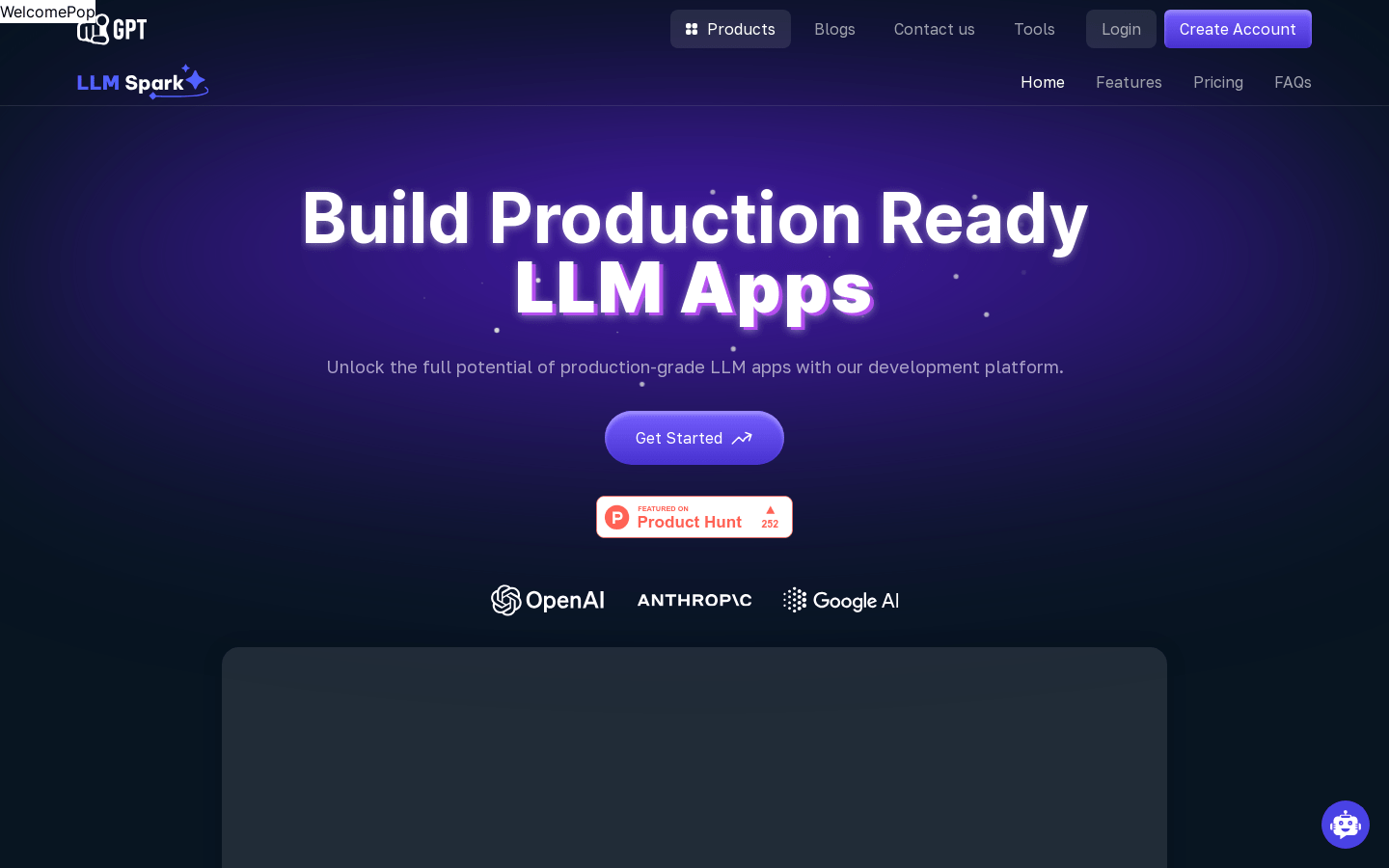Deepmark AI
Generative AI model evaluation tool

Product Details
Deepmark AI is a benchmark tool for evaluating large language models (LLMs) on a variety of task-specific metrics on their own data. It comes pre-integrated with leading generative AI APIs such as GPT-4, Anthropic, GPT-3.5 Turbo, Cohere, AI21, and more.
Main Features
Target Users
Deepmark AI is for generative AI builders to identify the most predictable, reliable, and cost-effective generative AI models by iteratively evaluating task-specific metrics based on the needs of specific use cases.
Examples
Evaluate different generative AI models on custom datasets
Test the accuracy of your generative AI models
Evaluate the cost-effectiveness of generative AI models
Quick Access
Visit Website →Categories
Related Recommendations
Discover more similar quality AI tools

SWE-bench Verified
SWE-bench Verified is a manually verified subset of SWE-bench released by OpenAI, designed to more reliably evaluate the ability of AI models to solve real-world software problems. By providing a code base and a description of the problem, it challenges the AI to generate a patch that solves the described problem. This tool was developed to improve the accuracy of assessments of a model's ability to autonomously complete software engineering tasks and is a key component of the medium risk level in the OpenAI Readiness Framework.

Turtle Benchmark
Turtle Benchmark is a new, uncheatable benchmark based on the 'Turtle Soup' game that focuses on evaluating the logical reasoning and context understanding capabilities of large language models (LLMs). It provides objective and unbiased testing results by eliminating the need for background knowledge, with quantifiable results, and by using real user-generated questions so that the model cannot be 'gamified'.

MoA
MoA (Mixture of Agents) is a novel approach that leverages the collective advantages of multiple large language models (LLMs) to improve performance and achieve state-of-the-art results. MoA uses a layered architecture, with each layer containing multiple LLM agents, significantly surpassing GPT-4 Omni's 57.5% score on AlpacaEval 2.0, reaching a score of 65.1%, using an open source-only model.

GraphRAG
GraphRAG (Graphs + Retrieval Augmented Generation) is a technique for enriching understanding of text datasets by combining text extraction, network analysis, and prompts and summaries from large language models (LLM). The technology will soon be open sourced on GitHub and is part of a Microsoft research project aimed at improving text data processing and analysis capabilities through advanced algorithms.

MuKoe
MuKoe is a fully open source implementation of MuZero that runs on GKE using Ray as the distributed orchestrator. It provides examples of Atari games and provides an overview of the code base through a Google Next 2024 talk. MuKoe supports running on CPU and TPU, has specific hardware requirements, and is suitable for AI research and development that require large-scale distributed computing resources.

Intel NPU Acceleration Library
The Intel NPU Acceleration Library is an acceleration library developed by Intel for the Neural Processing Unit (NPU), designed to improve the performance of deep learning and machine learning applications. This library provides algorithms and tools optimized for Intel hardware, supports a variety of deep learning frameworks, and can significantly improve the inference speed and efficiency of the model.

Patchscope
Patchscope is a unified framework for inspecting hidden representations of large language models (LLMs). It can explain model behavior and verify its consistency with human values. By leveraging the model itself to generate human-understandable text, we propose leveraging the model itself to interpret its natural language internal representation. We show how the Patchscopes framework can be used to answer a wide range of research questions on LLM computing. We find that previous interpretability methods based on projecting representations into lexical space and intervening in LLM calculations can be considered special instances of this framework. Additionally, Patchscope opens up new possibilities, such as using more powerful models to interpret representations of smaller models, and unlocks new applications such as self-correction, such as multi-hop inference.

Google AI Studio
Google AI Studio is a platform for building and deploying AI applications on Google Cloud based on Vertex AI. It provides a no-code interface that enables developers, data scientists and business analysts to quickly build, deploy and manage AI models.

LLM Spark
LLM Spark is a development platform that can be used to build LLM-based applications. It provides rapid testing of multiple LLMs, version control, observability, collaboration, multiple LLM support and other functions. LLM Spark makes it easy to build smart applications such as AI chatbots and virtual assistants, and achieves superior performance by integrating with provider keys. It also provides GPT-driven templates to accelerate the creation of various AI applications while supporting customized projects from scratch. LLM Spark also supports seamless uploading of datasets to enhance the functionality of AI applications. Compare GPT results, iterate and deploy smart AI applications with LLM Spark's comprehensive logging and analytics. It also supports simultaneous testing of multiple models, saving prompt versions and history, easy collaboration, and powerful search capabilities based on meaning rather than just keywords. In addition, LLM Spark also supports the integration of external data sets into LLM and complies with GDPR compliance requirements to ensure data security and privacy protection.

Microsoft Cognitive Toolkit
The Microsoft Cognitive Toolkit (CNTK) is an open source commercial-grade distributed deep learning tool. It describes the calculation steps of neural networks through directed graphs, supports common model types, and implements automatic differentiation and parallel calculations. CNTK supports 64-bit Linux and Windows operating systems and can be used as a library for Python, C or C++ programs, or as a standalone machine learning tool through its own model description language BrainScript.

Vertex AI
Vertex AI provides the all-in-one platform and tools needed to build and deploy machine learning models. It has powerful features to accelerate the training and deployment of custom models and provides pre-built AI APIs and applications. Key features include: integrated workspace, model deployment and management, MLOps support, and more. It can significantly improve the work efficiency of data scientists and ML engineers.

deepeval
DeepEval provides different aspects of metrics to evaluate LLM's answers to questions to ensure that the answers are relevant, consistent, unbiased, and non-toxic. These integrate well with CI/CD pipelines, allowing machine learning engineers to quickly evaluate and check whether the LLM application is performing well as they improve it. DeepEval provides a Python-friendly offline evaluation method to ensure your pipeline is ready for production. It's like "Pytest for your pipelines", making the process of producing and evaluating your pipelines as simple and straightforward as passing all your tests.

Teachable Machine
Teachable Machine is a web-based tool that allows users to create machine learning models quickly and easily, without requiring specialized knowledge or coding abilities. Users only need to collect and organize sample data, Teachable Machine will automatically train the model, and then users can test the accuracy of the model, and finally export the model for use.